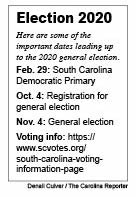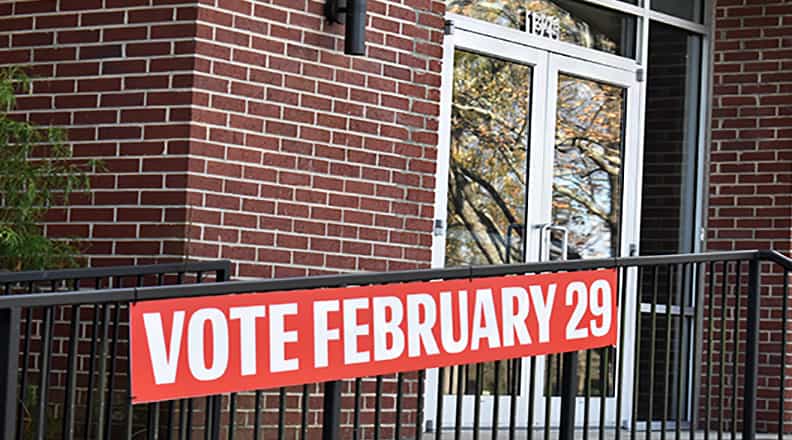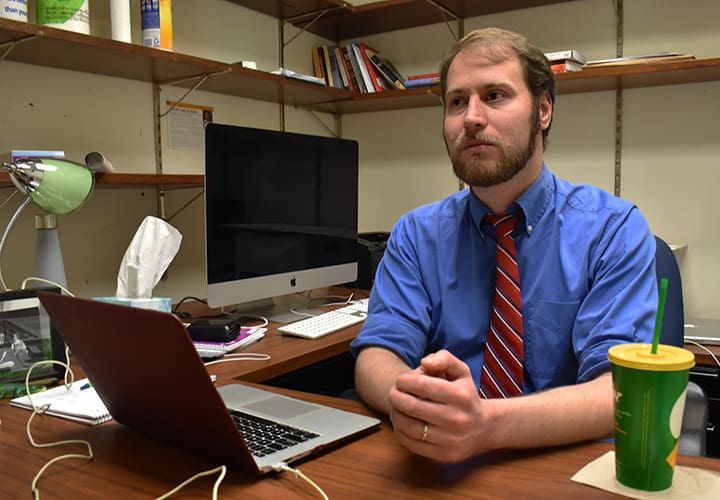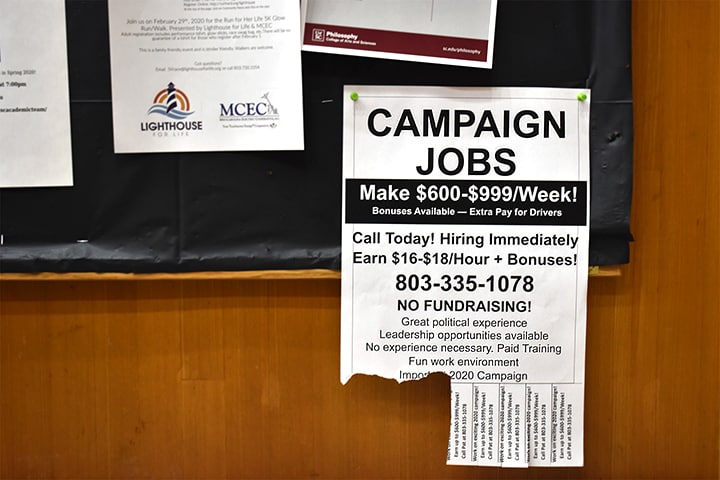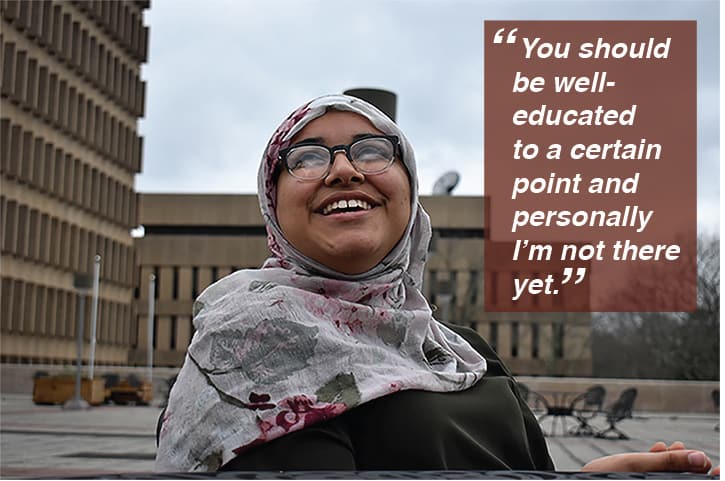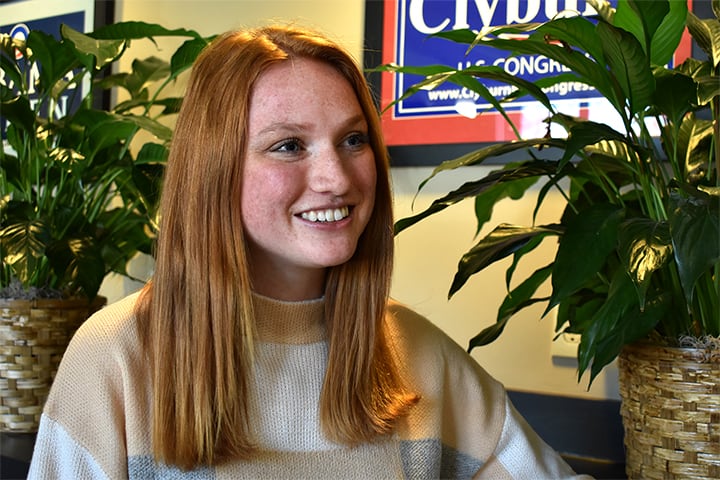The South Carolina Democratic Party advertises upcoming South Carolina primary in front of their Columbia headquarters.
By LEXI TORRENCE and DENALI CULVER
Over one million more S.C. voters are registered today than 20 years ago, but still, only a fraction of young adults go to the polls.
In 2000, just over 2 million voters were registered to vote in the South Carolina primaries. January 30 was the last day to register for the 2020 Democratic primary, with a record of 3.3 million voters registered.
Despite the rise in voter registration and turnout, young adults are still less likely to vote than older generations. According to the United States Elections Project, just over 30 percent of 18-to-29 year olds voted in the 2018 midterms, while the over-60 demographic cast almost twice as many votes.
On Feb. 29, South Carolina voters participate in the Democratic primary to choose who should run against President Donald Trump in the general election.
Chase Meyer, a University of South Carolina political science professor, said South Carolina’s primary is unique because its demographics differ largely from the states that come before.
“It’s the first way for the South to have a say on a candidate, as well as for black voters,” said Meyer, a visiting assistant professor who studies U.S. elections and political parties.
Despite a campaign by UofSC’s student government to promote voter registration, many students still feel uneducated about or uninterested in the voting process.
“I don’t like dealing with politics. I think it’s too toxic and I have other stuff I’m worried about,” said Conner Graves, a third-year criminal justice major.
Graves explained that he thinks voting is important, but would rather not vote if he isn’t sure about a candidate. He didn’t know that the deadline for registering for the primary had passed.
Haleema Adly, a first-year nursing student, also didn’t register in time for the primary, but hopes to be ready in November.
“If you want to have a say in your government and what’s going on, you should go vote. But you should be well-educated to a certain point and personally I’m not there yet,” Adly said. “I’m still taking things in, still considering if I should or should not register, especially as there are decades of stuff that I still don’t know what’s going on.”
Adly has seen multiple presidential candidates speak at the university and is currently favoring former South Bend, Indiana, mayor Pete Buttigieg. In addition to Buttigieg, Vermont Sen. Bernie Sanders, California Sen. Kamala Harris, businessman Andrew Yang and others have visited UofSC’s campus or nearby.
“We’re the future,” said Logan Ingram, a third-year advertising major. “We have an influence on this country. I think it’s important that we give our influence.”
Meyer explained that the national campaigns, not the local parties, are responsible for educating local voters on when and how to vote.
South Carolina Democratic party spokesperson Greer Schneider said all presidential campaigns are running their own primary operations. “The state party rather puts on just ‘get out the vote’ efforts for primary day because we are neutral on every presidential candidate up until the time of the primary and after our national convention.”
Campaigns started to be active in 2018, said Schneider, and many candidates come to South Carolina for events like the state convention and 6th District Rep. Jim Clyburn’s annual fish fry. The South Carolina Democratic party promotes these events and others across their website, social media and email lists, but it’s still the candidates’ jobs to campaign for votes.
“If candidates had taken South Carolina more seriously, then they would have picked up the slack and have gotten people registered, gotten people informed and aware,” Meyer said.
According to data from Real Clear Politics, Biden is polling at 31 percent in South Carolina, with the next closest candidate being Tom Steyer at 18.5 percent. Meyer believes many candidates view the South Carolina primary as a guaranteed Biden win, so they focused their efforts on other primaries.
“Trust me, if you were a student in New Hampshire, you were guaranteed to be told when the registration deadline was,” Meyer said. “Not the local party would have done it, but every single campaign would have made sure that public knowledge.”
Visiting UofSC Political Science Professor Chase Meyer weighs in on the importance of the South Carolina primary.
Many political campaigns are seeking additional help by posting advertisements on the university campus.
Haleema Adly, an 18-year-old UofSC student, wants to be well-informed before she casts her ballot.
Greer Schnider, spokesperson for South Carolina Democratic Party, says the party is attempting to increase young voter participation in the South Carolina primary.
